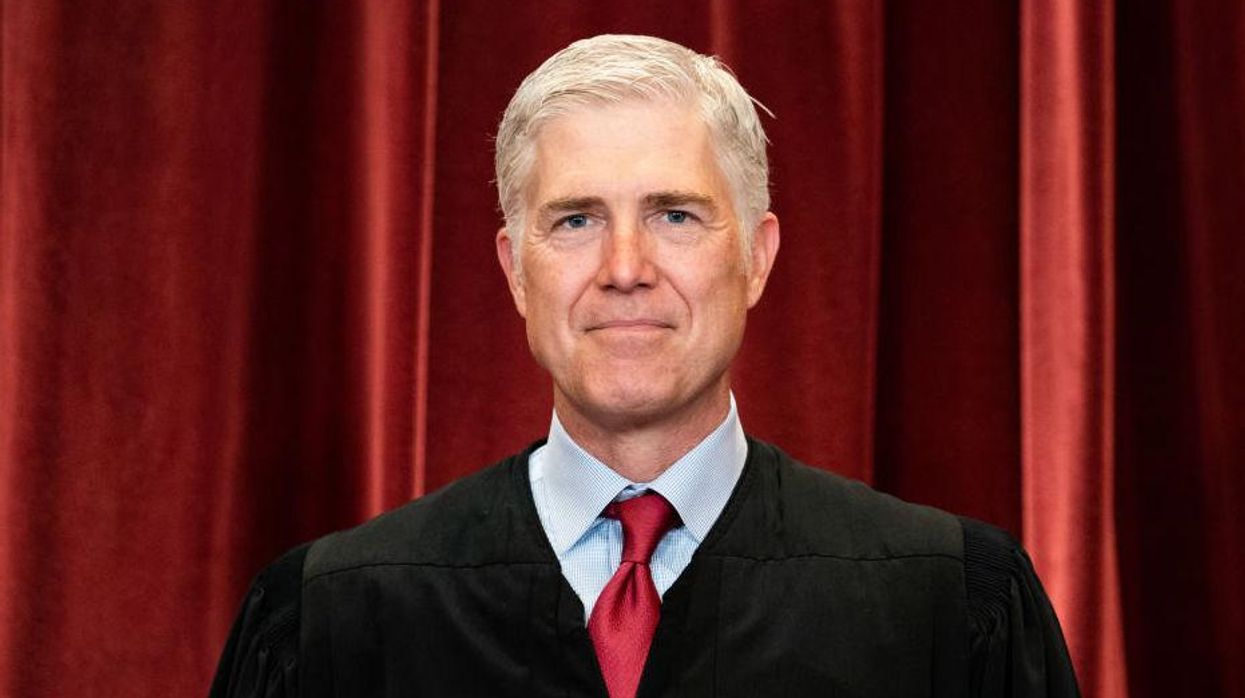
Erin Schaff-Pool/Getty Images

Supreme Court Justice Neil Gorsuch got Colorado Solicitor General Eric Olson to essentially admit on Monday that cake baker Jack Phillips went through a reeducation program.
The admission happened as Gorsuch grilled Olson during oral arguments for 303 Creative LLC v. Elenis, a case about whether public accommodation laws that compel artists to violate their personal beliefs violate the First Amendment.
After an intense back-and-forth, Gorsuch questioned Olson about the legal remedy that Colorado imposed against Phillips for not having baked a wedding cake for a same-sex couple. Though Olson denied it was a "reeducation" program per se, what he described was a reeduction program.
"Mr. Phillips did go through a reeducation training program pursuant to Colorado law, did he not?" Gorsuch asked.
"He went through a process that ensured he was familiar with —" Olson responded.
"It was a reeducation program, right?" Gorsuch interjected.
"It was not a reeducation program," Olson fired back.
"What do you call it?" the justice followed up.
"It was a process to make sure he was familiar with Colorado law," Olson admitted.
"Someone might be excused for calling that a reeducation program," the justice then quipped. Olson responded by saying, "I strongly disagree."
The exchange came after minutes of interrogation from Gorsuch in which the justice sought to draw out the difference between a freelance writer and a website designer who both refuse to provide services that contradict their sincerely held religious beliefs.
The writer, Olson explained, would have his religious beliefs protected, but the website designer in this particular case would not. He failed to explain why and even admitted the state can neither change someone's sincerely held religious beliefs nor allegedly make a practice of compelling people to express ideas or speech that violate those beliefs.
While the decision is not expected until sometime next year, the court is sympathetic toward the plaintiff, the website developer who sued Colorado because she argues the state's public accommodation law would force her to violate her religious beliefs if she designed wedding websites.
In 2018, the Supreme Court ruled 7-2 in favor of Phillips.
The court, however, did not rule on the broader questions related to public accommodation laws, answers the present case will likely provide.